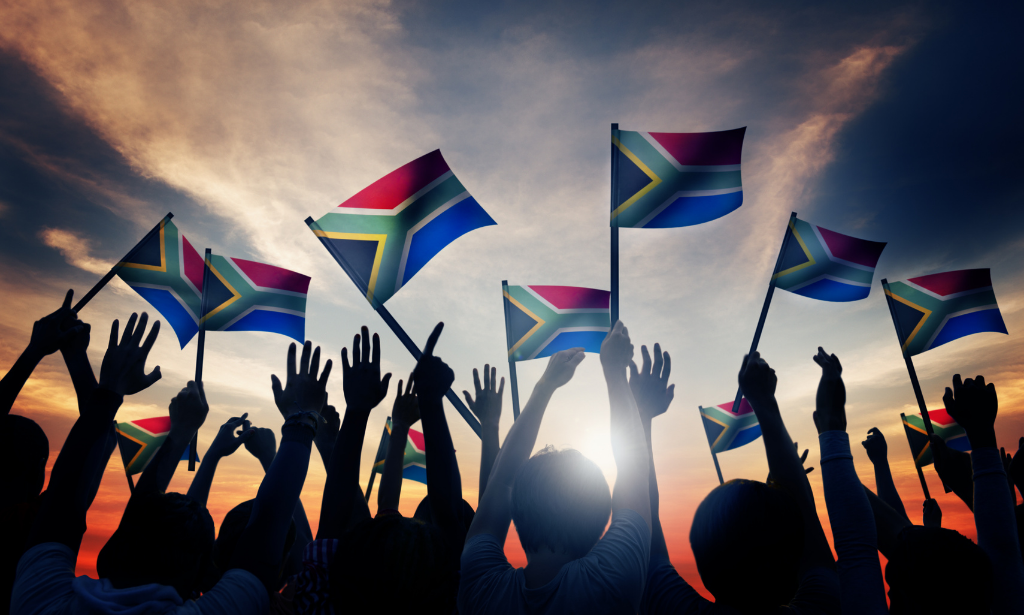Just like any other type of schooling, homeschooling is an international endeavor. Millions of families around the world have made the decision to take their child’s education into their own hands, especially during and in the wake of COVID-19. And, like the United States, every country has its own opinions, philosophies, and laws surrounding homeschooling.
In this monthly series, we’ll take a look at different countries around the world and how they view homeschooling as well as the types of laws (if any) those countries have to govern homeschooling. The first country we visited was the second-largest country in the world, northern neighbor to the United States–Canada. Then we went island hopping to the Philippines and Puerto Rico. This time we’ll check out homeschooling in South Africa!
The southernmost country in the continent of Africa, the Republic of South Africa is a major population center, with approximately 60 million residents. The country is known for its racial diversity and has 11 official languages. It also boasts a fairly significant number of homeschoolers. In 2019, it was estimated that 140,000 students were homeschooled in South Africa…but that number has doubled to approximately 300,000 since the start of COVID-19.
“The doubling of the number of home learners is in line with other countries such as the USA where the numbers also doubled,” said Chairperson of the Pestalozzi Trust Bouwe van der Eems. “This means that the number of home learners increased to probably 300,000 or 2.5% of the total school population.”
Rules and Requirements for Homeschooling in South Africa
Because of the disarray and lack of knowledge by the local authorities regarding homeschooling, there isn’t much for them to enforce. However, according to the HSLDA, “although the South African School Act provides for the registration of a learner for education at home, there does not appear to be an express right in this regard. A child registered for education at home must receive an education that meets the minimum requirements of the curriculum and the standard of education provided in state schools. The parents must also comply with such other reasonable conditions as the education department may set. However, since these requirements and standards have never been defined, it is unreasonable to enforce compliance.” It’s easy to see why so many parents do not bother registering their child with the departments of education.
- Testing: Parents are not required to administer or report tests; in fact, many parents find it completely unnecessary since they’re observing their child’s progress throughout the school year.
- School-leaving certificate: The National Senior Certificate (NSC) is a high school diploma and the school-leaving certificate in South Africa, also known as the matriculation (matric) certificate. Your child can register for the NSC through an accredited curriculum provider or may take a school-leaving course that is internationally recognized.
As homeschooling continues to grow in South Africa, so does the need for help and support for new homeschool families. Fortunately, support groups are abundant in the country–check out SA Homeschoolers to find a nearby group in your province.
Additionally, groups such as the Pestalozzi Trust and Liberty in Learning were specifically created to “protect the rights and freedoms of families and schools to educate their children according to their own religious or philosophical persuasions, educational preferences, and cultural traditions” as well as “retain their liberty to choose the education that is in the best interest of their children, as opposed to the state that attempts to limit these liberties and promote” its own interests. Most importantly, these groups ensure these rights without “unjust interference.”
There are also helpful Facebook groups, such as Educating@Home South Africa, to help homeschooling families.
South Africa’s School System
Homeschooling in South Africa is an interesting proposition, primarily because of its government. Educating your child at home is perfectly legal and has been since 1996, with each province given the authority to set its own standards. According to the HSLDA (Home School Legal Defense Association), home learners are required to apply to register with provincial education departments. However, those departments created several unlawful preconditions for registration that violate other legally prescribed rights and responsibilities, such as:
- A parent’s right to choose the kind of education their children receive
- Their responsibility to act in their children’s best interests
- Their legal responsibility to protect their children’s right to privacy, which is protected by the Children’s Act.
Because of these preconditions, the majority of parents elect not to register with their education department. In fact, approximately 90% of homeschoolers were not registered with departments of education before the pandemic–a figure that may have grown to about 95% post-COVID. Some homeschoolers in the country go so far as to advise potential homeschooling families not to even ask the local school or department of education for information. Apparently, many local officials are prone to ask for far more information than the law requires, and some even provide you with false information regarding requirements to homeschool your children.
These conditions have obviously not deterred South Africans from homeschooling, however, as the impressive growth in numbers illustrates. The bottom line is, the pros far outweigh the cons, and many parents in South Africa are choosing to homeschool for the same reasons American parents do.
- Subpar education system: In 2015, the Organisation for Co-operation and Development (OCED), ranked South Africa’s education system 75th out of 76 mostly wealthy nations, making it one of the world’s worst. Additionally, in November 2016, the Trends in International Mathematics and Science Study, a test taken by nearly 600,000 students in 57 countries, placed South Africa at or near the bottom of its rankings. Incredibly, a mere 27% of students who have attended school in South Africa are unable to read. These are alarming figures that have undoubtedly pushed more and more parents to homeschool their children in South Africa.
- Rising costs, diminishing returns: While 2021 saw the lowest rise in school fees since 1991 (4.1%), the cost to attend school in South Africa has been increasing for 30 years (obviously). That’s difficult enough for struggling families who simply want their children to receive an education. Couple that with the fact that these students simply aren’t learning at the rate they should be (see bullet point above), and that means families are paying more for very little education in return.
- Bullying: While some government officials blame South Africa’s generally violent society for bullying in school, it’s clearly an issue that has yet to be fully addressed. That alone is enough for many parents to keep their children at home, away from the hostile environment in the schools.
- No space in schools: South African schools are literally out of space, with nowhere to place new students–or even existing ones. Students who move to a new province are forced to wait at home until the following school year, and even that is no guarantee for a spot in a classroom. As of early this year, there was still a large backlog of students without a place in school, including more than 16,000 grade 8 students and nearly 9,000 grade 1 students.
- A recognized education: With more and more homeschooled students being admitted to colleges, universities, and the workforce, South Africans are beginning to realize that homeschooling is a viable educational option that may be the best choice for their kids.
- More attention for special-needs students: Autism and Asperger’s are on the rise in South Africa: ”data showed a 76.03% increase in autism spectrum disorder in schools between 2012 and 2016, with an average increase of 15.18% per year. Studies also indicated that, despite being one of the better-resourced provinces in South Africa, the Western Cape is not equipped to identify and meet the culturally and linguistically diverse needs of its communities.” That means many children who need individual attention and instruction are not receiving it.
Bridgeway in South Africa
Bridgeway Academy is the homeschool choice for many students in South Africa! And just like we did for those students, Bridgeway can help your family choose the right program to fit your schedule and needs. We’re also aware of the country’s requirements, so our team is ready to get you set up with the perfect homeschool program. You can download our free PDF about homeschooling with a U.S. based program and then contact our admissions team today at (800) 863-1474 to start your homeschool adventure.
If you’re currently living in South Africa or plan on moving there, remember that Bridgeway Academy offers plenty of amazing homeschool programs–plus accreditation, record-keeping, and support–that can be used anywhere in the world! Stay tuned–we’ll be bringing you homeschooling info from another international location soon!
Download our free PDF about homeschooling with a U.S. based program!








